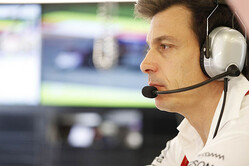


11/07/2016
NEWS STORY
 Just three weeks after Lewis Hamilton's issues on the streets of Baku, radio communications found themselves back in the headlines yesterday when Nico Rosberg was handed a 10s penalty - thereby dropping him from second to third - after he and his team were deemed to have breached Article 27.1 of the Sporting Regulations, namely that a "driver must drive the car alone and unaided".
Just three weeks after Lewis Hamilton's issues on the streets of Baku, radio communications found themselves back in the headlines yesterday when Nico Rosberg was handed a 10s penalty - thereby dropping him from second to third - after he and his team were deemed to have breached Article 27.1 of the Sporting Regulations, namely that a "driver must drive the car alone and unaided".
Whilst part of the communication between the driver, who was struggling with a gearbox issue in the closing stages of the race, were deemed as being within the rules, when Rosberg was told "you need to shift through it", in an attempt to avoid seventh gear, he was receiving specific instructions that breached Article 27.1.
As we await news on whether Mercedes will appeal the penalty, the whole debate over radio communications is back on the table again, having gone fairly quiet since Baku.
At the weekend, Charlie Whiting, made it clear that the FIA was to get tougher in enforcing its rules, witness the clampdown on track limits which included the notorious kerbs in Austria and deleted times at Silverstone. The governing body is also clamping down on radio communications, warning that any perceived breaches would be sent to the stewards.
Even before the Silverstone stewards had made their decision regarding Rosberg, some in the paddock were arguing that whatever happened it would set a precedent.
"The question is, what would have happened if they hadn't instructed him what to do," Christian Horner told Sky Sports F1 in the moments after the race. "He came past us very, very slowly and obviously instructions tidied up whatever the issue was. With an engine mode and a gearbox position, as the rules are written today, it isn't right.
"The rule is complete rubbish," he continued. "That kind of thing should happen, but it's not allowed, and that's the rules that we’re working to.
"There are loads of messages we'd love to give our drivers today which we couldn't because of the rules," he admitted, "so if they've benefitted through that then it's down to the stewards to decide.
"You've got to play to the rules, and that's down to the stewards to decide."
In a subsequent interview, again before the stewards had made their decision, Horner warned that the wrong penalty would set a precedent that could lead to a free-for-all.
"If it is just a five-second penalty or a reprimand, then it is all fair game for the rest of the year," he told reporters. "There will be loads of messages that will take into account whether it is worth five seconds or not, or a reprimand to give to the car. What will be interesting to see is the precedent that is set by the stewards because they have made it very, very clear, explicitly going into this weekend, what their expectations were."
Asked if the team's message to Max Verstappen that Rosberg was under investigation was itself a breach of the rules, Horner said: "That is strategy. The car ahead has got an issue effectively, that is not instructing him how to drive the car or change any switches, or miss any gears out."
"I think the basic idea of limiting the driver radio communications and not coaching them, and not making them look like remote controlled, is good," Mercedes team boss Toto Wolff told Sky Sports F1 ahead of the Stewards ruling. "But maybe with the technology, the amount of electronics, it should be allowed... at least when there is terminal failure inside or when the driver can't cope with the electronics anymore. But the FIA needs to decide and we will certainly discuss in the Strategy Group.
Disagreeing with Horner's claim, Wolff said the Briton had "got the regulations wrong in terms of the way he interprets them".
"If you have a terminal failure you can act. I wouldn't pre-empt what the Stewards will decide because they could go in another direction, that is their call, but I think if you read the regulations as they are it should be fine.
Asked if telling a driver to push at a certain point in the race, as in 'Hammertime', is giving instructions, Wolff replied: "The question is, where does it start and where does it end? I think this is why we should be opening up a bit, but I guess the FIA has taken these decisions for a specific reason that was to restrict it and to make it more unpredictable and they've achieved that.
Asked if he wants the return of radio comms, the Austrian said: "I would want a tiny bit back. If there is a technical problem on the car, yes, if you coach the drivers, no."
Fact is, at a time there is already talk of coded messages and code words, teams will always try to find a way to get around the rules - not break them but circumvent them.
If Rosberg's car had a "terminal issue" then, in our humble opinion taking the word "terminal" at face value, the German should have been advised how best to retire the car without any further damage to its components and without causing risk to the driver of his rivals. Terminal is terminal.
At the same time, this is yet another example of things not being thought through by the sport's powers-that-be.